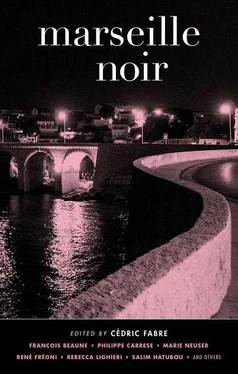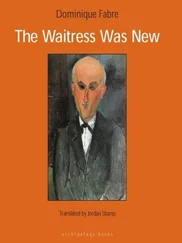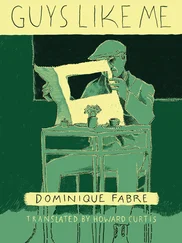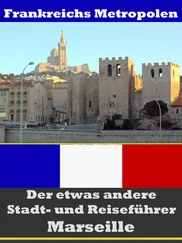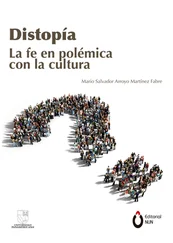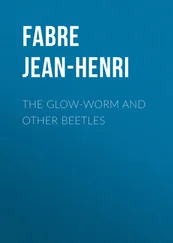Cédric Fabre - Marseille Noir
Здесь есть возможность читать онлайн «Cédric Fabre - Marseille Noir» весь текст электронной книги совершенно бесплатно (целиком полную версию без сокращений). В некоторых случаях можно слушать аудио, скачать через торрент в формате fb2 и присутствует краткое содержание. Год выпуска: 2015, Издательство: akashic books, Жанр: Крутой детектив, на английском языке. Описание произведения, (предисловие) а так же отзывы посетителей доступны на портале библиотеки ЛибКат.
- Название:Marseille Noir
- Автор:
- Издательство:akashic books
- Жанр:
- Год:2015
- ISBN:нет данных
- Рейтинг книги:5 / 5. Голосов: 1
-
Избранное:Добавить в избранное
- Отзывы:
-
Ваша оценка:
- 100
- 1
- 2
- 3
- 4
- 5
Marseille Noir: краткое содержание, описание и аннотация
Предлагаем к чтению аннотацию, описание, краткое содержание или предисловие (зависит от того, что написал сам автор книги «Marseille Noir»). Если вы не нашли необходимую информацию о книге — напишите в комментариях, мы постараемся отыскать её.
Marseille Noir — читать онлайн бесплатно полную книгу (весь текст) целиком
Ниже представлен текст книги, разбитый по страницам. Система сохранения места последней прочитанной страницы, позволяет с удобством читать онлайн бесплатно книгу «Marseille Noir», без необходимости каждый раз заново искать на чём Вы остановились. Поставьте закладку, и сможете в любой момент перейти на страницу, на которой закончили чтение.
Интервал:
Закладка:
“My red jacket!”
“Throw your red jacket in the trash.”
“Are you crazy? It’s too beautiful!”
“Into the closet then. I’ll stash it away, you’ll get it back later.”
Silence means consent.
“I’ll loan you my Perf when you leave. I bought it from a buddy, and anyway, it’s too short for me. It’ll fit you perfectly,” says Maurice with what sounds like regret.
“What about my red hair?”
“We so don’t care about your red hair! All you see are redheads these days! If you want me to, I can lend you a hat.”
That afternoon, you can spot a slim silhouette in a Perfecto motorcycle jacket, wearing a Che cap, her face hidden by useless sunglasses as she slinks through the city hugging the walls.
If the fat guy’s dead, we’ll hear about it, Maurice tells himself. Consequently, he suffers through the local evening news on TV. Nothing.
The next morning, there’s nothing in Le Provençal either. Maybe the fat guy didn’t die after all? The following days he reads all the papers, even La Marseillaise, which is harder and harder to find in cafés, what with the decline of the Communist Party and all. During the week he calls the shop a number of times to reassure Sarah, but doesn’t dare go there.
The young woman is sticking to her word, she doesn’t say anything to anyone. In fact, what worries her more now is her red jacket: Maurice, prey to a fit of paranoia, hid it in the attic, where nobody ever disturbs the spiders, in the unlikely event that the police show up to search his place; that’s what happens when you watch too many crime shows on TV.
Walking around as if nothing happened, he sees that nothing seems to have changed on the streets of Marseille. The pedestrians he passes don’t seem to suspect in him the criminal he has become. Visibly, no one seems to care, from the baker who gives him back his change to the bum holding out his hand to ask for it. The mistral has begun to blow, cutting through bodies with its icy blade. Sarah has put away her miniskirts and open heels, once again wrapped up in her winter clothes.
In Marseille, you go from summer to Siberia as soon as the mistral blows. On market days in la Plaine, when the vendors have left, hundreds of abandoned plastic bags fly off in all directions and get stuck on branches, more decorated now than Christmas trees. The road workers do their best to fight the wind, and Sarah’s father is struggling, his hands freezing despite his gloves. Backed up by the team of motorized sweepers that push heaps of trash toward the gutters with powerful jets of water, the sweepers on foot have to redouble their efforts to get to the end of it. Nonetheless collecting what can be recycled, like hangers for Sarah’s shop: her boss likes them and Sarah likes to please her. But on those days, it’s out of the question to make the rounds of the cafés to grab “a quick cup of coffee”: it’s not exactly a racket, more like a gift, renewed all year long by the café owners to thank the garbagemen for cleaning up out front.
During the day, la Plaine is a very lively neighborhood, with constant traffic jams, for the city’s traffic plan was drafted by madmen. The incurable desynchronization of traffic lights doesn’t help. At night it’s just the opposite, it’s a desert. And a paradise for rats and seagulls, who finish the road workers’ job with such enthusiasm that it’s obvious they’re not members of the Force Ouvrière. Every evening, at the corner of rue des Trois Mages, faithful to her post, an old Eskimo woman in rags waits till it’s past midnight. She’s not there because of the snow — we get snow here once every ten years. She stands there at the red light offering bread and pastries stuffed in big plastic bags to the drivers. It’s surplus from the nearby bakery which she sells these latecomers for next to nothing; what she doesn’t sell, she distributes to the pigeons the next day, to the annoyance of the many neighborhood grouches.
Ever since the other night, because he’s afraid of venturing any farther and because he can’t be bothered to cook, Maurice has eaten lunch at Dirigible, a sandwich stand in the heart of the square. Among the bums waiting in line for their baguette stuffed with meatballs, how many know that this modest establishment owes its strange name to the takeoff, on this very spot, of a hot-air balloon which crossed the Mediterranean for the first time in 1886? The young man learned this by turning around to look at a girl and raising his eyes by chance to the plaque nobody ever notices that decorates the wall of the old post office building. Marseille is the oldest city in Europe, but you’d think it has no history. Under construction for the last 2,600 years, and nothing appears to be properly finished or durably built. It doesn’t even have a historic downtown like you find in the smallest provincial sub-prefecture! The Yanks, our cousins in the New World, have some houses over there older than in Marseille, which permanently self-destructs rather than constructs, without the slightest respect for its old stones. For Marseille doesn’t take care of itself, as it’s been governed forever by a commercial aristocracy absorbed in its own business, which scorns the city and its working people, who’ve come here from all over the seven seas in search of a better life. And when, as bad luck would have it, Greek or Roman remains are discovered — something that happens at every strike of the pickax — there is only one pressing concern: bury them so as not to delay construction. Otherwise, the Phocaean city, as we call it, could live for a long time off the tourists who come to see its ancient monuments, like Pompeii. But here the concrete mixers turn like drums in a washing machine. Their main use is to launder cash.
Once, as he’s getting ready to bite into a tournedos omelet, Maurice sees Sarah passing by in the distance. but he doesn’t dare go meet her.
Maurice plunges ahead. He hesitated for a long time before he dared to cross his Rubicon. To cross la Plaine and venture back into the meandering little streets that separate it from cours Julien. To return to the scene of the crime. His beard has grown and with his dark glasses and his tuque, you’d take him for Serpico. He has to find out, he can’t stand it anymore. For all this time, not one word in the papers; even at the neighborhood bar, he never heard a word about the incident. He finally told himself that if the fat guy was dead, he would have heard something, right? And yet there was all that blood. and that sound of broken bones when the colossus thudded facedown onto the ground. The light turns red, the pedestrian symbol turns green: alea jacta est, the die is cast!
On the other side of the crosswalk, he leaves his territory: an imaginary border traced inside his head, beyond which he’s in trouble. First of all, la Plaine is his home, and then, there’s plenty of space, it’s bustling, and with market days and the line at the post office, there’s all the animation an assassin might need to blend into the crowd and sink into anonymity. While in the narrow adjacent streets where few people walk by, you’re careful to avoid the eyes of passersby; it immediately seems to him that everybody sees only him and he could be recognized. His heart starts beating hard, his throat tightens. He could still turn around but now he’s already reached the next street. The fat guy’s street. The entrance appears to be outlined with a dark border. Maurice breathes in deeply and resumes walking — he’s aware he’s going forward even though he no longer feels his legs beneath him. The doorway is getting nearer. A lady’s rear end appears in the entranceway, moving backward. The door is growing larger in front of his very eyes; this time his heart actually stops beating, but he keeps moving forward. The fat guy is standing there, talking to the lady. The top of his head is bandaged. He doesn’t seem to notice Maurice, who walks by like a zombie.
Читать дальшеИнтервал:
Закладка:
Похожие книги на «Marseille Noir»
Представляем Вашему вниманию похожие книги на «Marseille Noir» списком для выбора. Мы отобрали схожую по названию и смыслу литературу в надежде предоставить читателям больше вариантов отыскать новые, интересные, ещё непрочитанные произведения.
Обсуждение, отзывы о книге «Marseille Noir» и просто собственные мнения читателей. Оставьте ваши комментарии, напишите, что Вы думаете о произведении, его смысле или главных героях. Укажите что конкретно понравилось, а что нет, и почему Вы так считаете.
